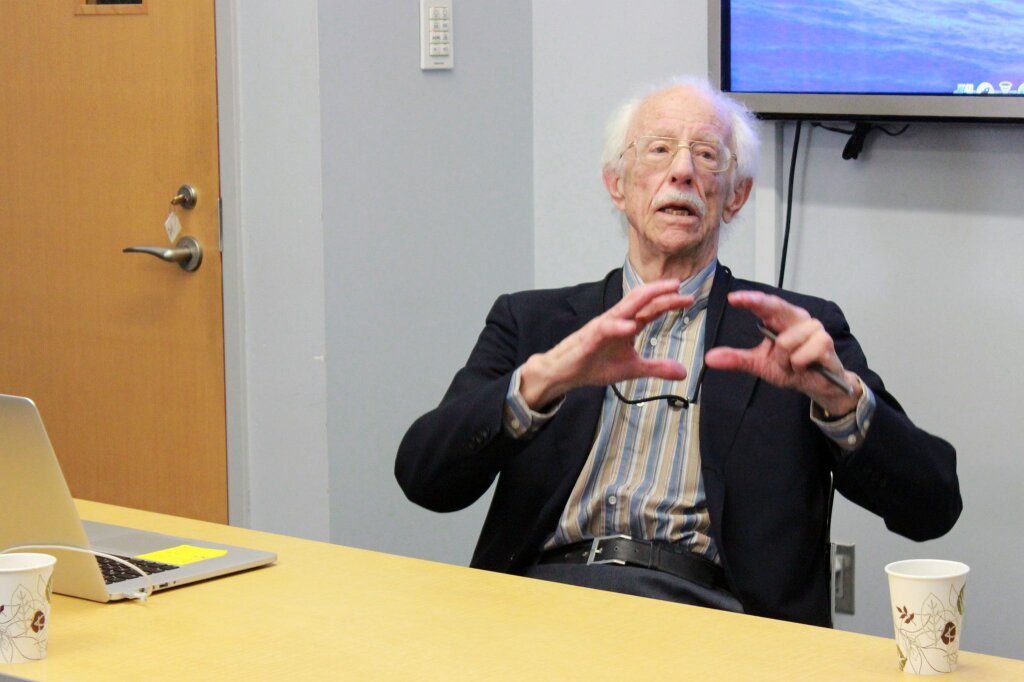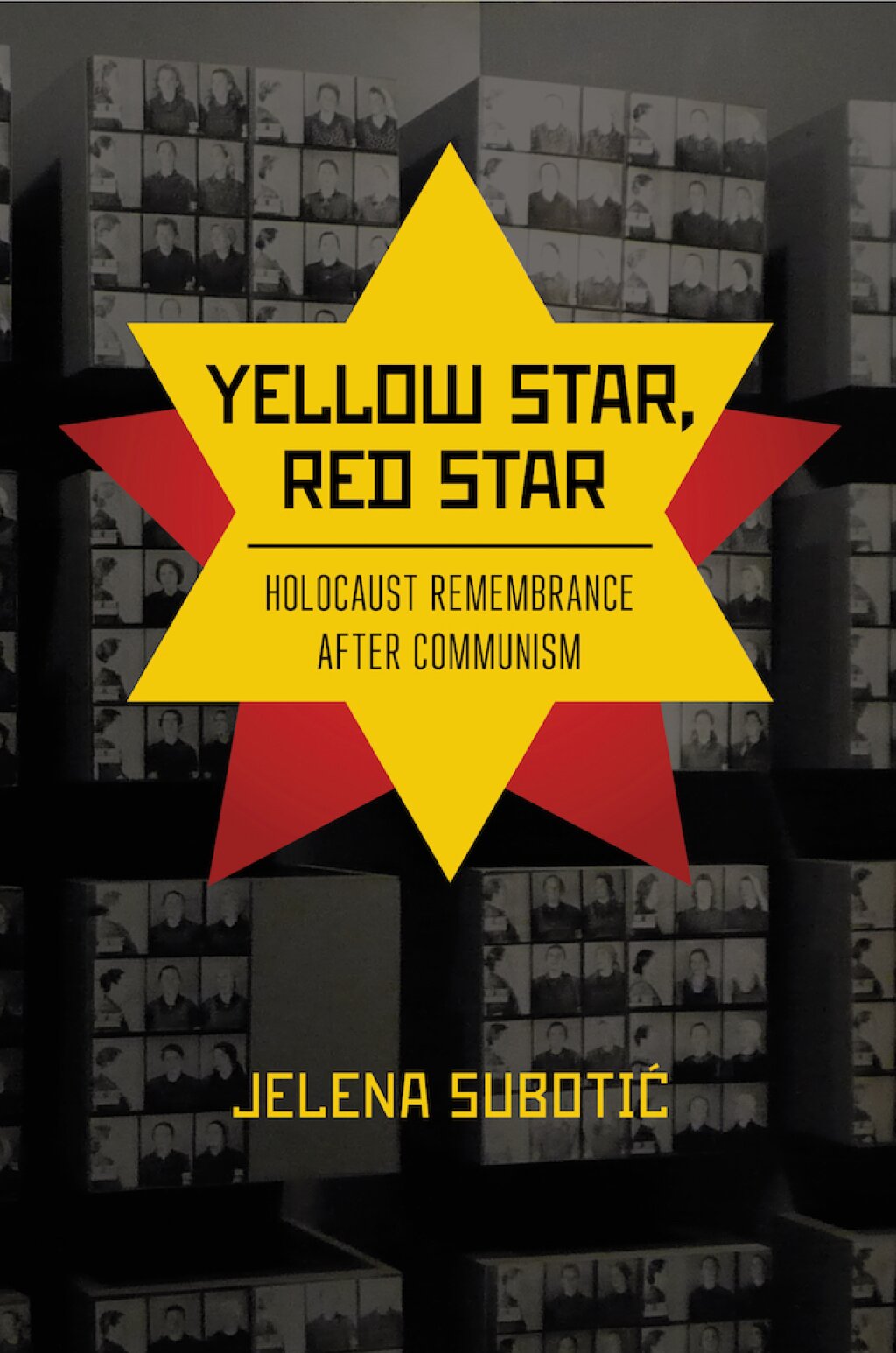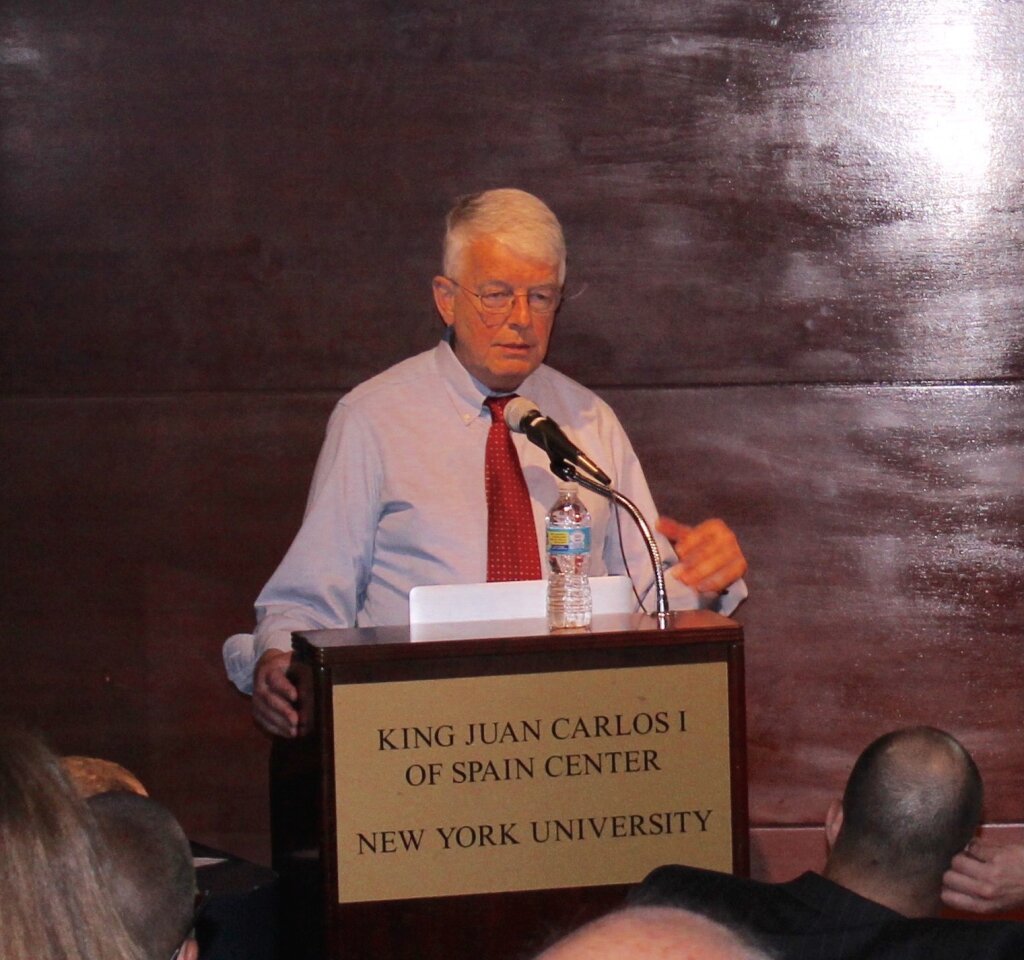Watch the video of the event here
On March 28, 2016, the NYU Jordan Center for the Advanced Study of Russia and the NYU Department of History welcomed Alfred J. Rieber from Central European University for a lecture on his recent book, “Stalin and the Struggle for Supremacy in Eurasia." The event was introduced by Jordan Center Director Yanni Kotsonis and was followed with comments by Stephen Kotkin from Princeton University.
Rieber started contexualizing his book, beginning from its cover. The image the author chose for his monograph shows Stalin greeting a diverse set of Soviet nationalities in the foreground and a world map in the background. “That is a conscious effort on my part to illustrate the centrality of the nationality question in the building of [...] the Soviet Union out of the ruins of the Russian empire and it is also illustrative of the centrality of the nationality question in the formation of Soviet foreign policy under Stalin,” he explained.
Approaching Soviet history through the lens of multiethnic nation-building, Rieber began with what he called “the Bolshevik dilemma.” He described how the formation of a Soviet state not only involved dealing with a multicultural polity, but also confronted the problems of porous frontiers, relative economic backwardness and cultural alienation. “How do you build a state and at the same time profess revolutionary expansion and then fight a civil war?” Rieber asked. These challenges persisted throughout Stalin’s regime and problematized the leader’s foreign policy.
Rieber said that his book begins with an argument about Stalin’s Weltanschauung, a worldview informed by three elements: revolutionary Marxism from Russia, Stalin’s own understanding of the South Caucasus as a “shatter zone,” and the Georgian cultural milieu. According to Rieber, Stalin’s Georgian roots remained integral to his identity and behavior throughout his life. For example, the speaker spoke of the symbolic value that Stalin’s hometown, Gori. Founded in the fourteenth century with a fortress at its center, the city contributed to shaping the Soviet leader’s approach to nationality policies. “I think this image should be considered important to the Stalinist mentality,” Rieber said, transposing the image of a fortressed Gori onto the nation-building program of the Soviet Union.
Rieber also used biographical evidence to explain Stalin’s multiethnic policy. “A lot of scholars think that Stalin was Russified [...] I don’t don’t think you can blot out the first 28 years of your life,” he said. He said that the leader’s experiences with Great Russian chauvinism in his youth, and his contact with different ethnicities during his time spent in Baku and Batumi help us understand why nationality was central to Stalin’s foreign policy. But at the same time, “Russia for him was the source of Marxism,” Rieber said. “It’s not that he’s a Georgian nationalist – he’s something else. Someone who recognizes the importance of Russia in forming the Soviet Union and in keeping it intact.” Active in the revolution, Stalin was commissioned by Lenin to write on the nationality question. Once elected to the Central Committee, Stalin singled out the Georgian Mensheviks and other groups who claimed to represent the proletariat of their ethnicity. “Here we have already Stalin’s view that the ethnic Communist parties have to be subdued, controlled, subordinated, to an all-union party,” Rieber said. In Stalin’s view, the proletariat was supposed to represent a united force of all the workers of the former empire.
This same mentality carried over to Stalin’s own leadership, not only in his skepticism towards revolution in the West, but also in his ambivalence toward communist parties in the borderlands. “In his view,” Rieber said, “the borderlands were socioeconomically backward and vulnerable to foreign intervention in alliance with local nationalists.” This was bolstered by the disintegration of the borderlands of competing empires in Eurasia after 1918, whose emerging successors were military nationalists and warlords.
Subsequently, korenizatsiia (the early Soviet nationalities policy aimed at integrating representatives of titular nations of Soviet republics and national minorities into the union’s administrative system) and national deviation (bourgeois constructs of nationality) became two core issues in Stalin’s project to build a powerful socialist state. As opposed to Lenin, Stalin wanted independent socialist republics like Armenia and Ukraine to enter into the Soviet Union by giving up their sovereignty to the center. “Stalin maintaining socialism in one country really changes the game,” Rieber said. Eventually, while these republics would retain their cultural identity—their language, their cultural institutions—they would sacrifice economic and political sovereignty.
Nonetheless, Stalin’s vision had to be modified by the 1930s with the rise of two new challenges to the borderlands: Nazi Germany and Imperial Japan. Moreover, at the end of World War II, Stalin expected a $6 billion loan from the United States to help build the Soviet Union. “It was never granted,” Rieber said. “Even though [Russia] has gained the borderlands, these borderlands are unstable, they are open to penetration, and you have to rebuild your country all by yourself. Could there have been an alternative?”
Following the presentation, Kotkin challenged Rieber on the interpretive aspect of his work. “You’ve got the structural factors and you’ve got Stalin side by side. You’re indicating that he’s a product of the structural factors, but is he also a conjurer?” Kotkin asked. Reviewing his argument, Rieber said that his borderland thesis comes out of his study of Stalin’s worldview. It is “a policy which attempts to maintain the cohesion of the state, protection of the frontiers and the transformation of the state into a modern industrial empire,” Rieber said. “Yes, he is a product of the environment from which he develops, but [...] he engages in these elements and he converts them to his own purpose.” According to Rieber, Stalin remains a unique case-study because his contemporaries never incorporated the nationality question. “That’s their weakness,” he concluded.



